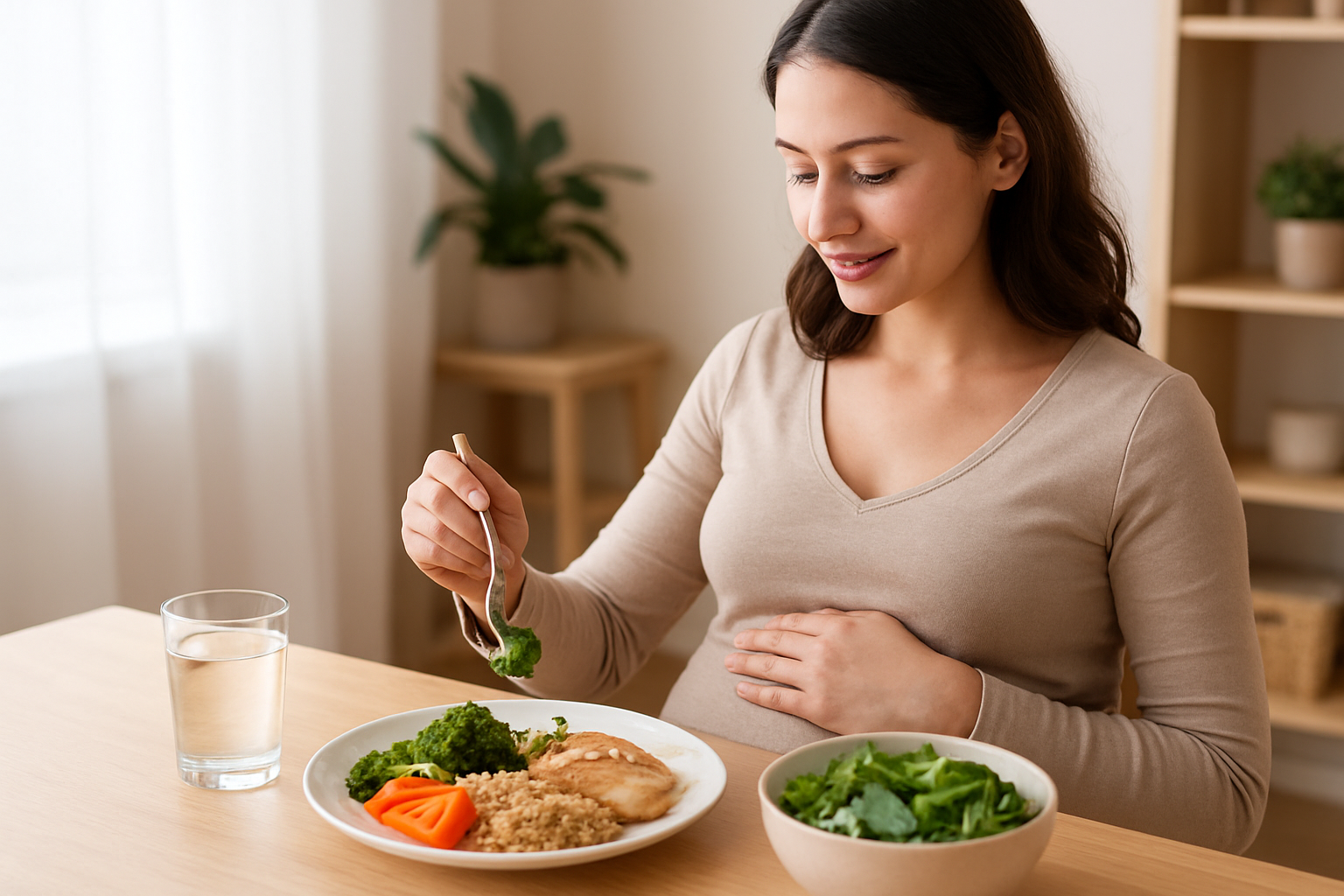Nutrition During Pregnancy: What Obstetricians Recommend for a Healthy Baby

Discover what to eat during pregnancy for a healthy baby. What do obstetricians recommend &why does it matter? Find out in this quick guide.
Pregnancy is honestly one of the most exciting rollercoasters you’ll ever ride—minus the seatbelt and with way more emotions and cravings. And right in the middle of it all is one major thing you can control: what you eat.
Good nutrition during pregnancy isn’t about dieting or eating “perfectly”—it’s about giving your body and your growing little one the fuel they need. At Central Hospital Sharjah, our obstetricians guide moms daily on how to make smart, simple food choices that support a healthy pregnancy.
Why Nutrition Actually Matters During Pregnancy
Your diet directly impacts your baby’s development—everything from tiny growing bones to brain formation. When you nourish yourself well, you’re helping your baby get the nutrients they need.
Poor nutrition can lead to low birth weight, fatigue, anemia, or complications you definitely don’t want to deal with. The goal? Healthy weight gain, steady energy, and enough essential nutrients for both of you.
Essential Nutrients Obstetricians Recommend
1. Folic Acid
Think of folic acid as the superhero vitamin. It helps prevent neural tube defects and is usually recommended even before conception. Most moms need around 400–600 mcg daily—easy through prenatal vitamins and foods like spinach and beans.
2. Iron
Iron keeps anemia away and helps transport oxygen to your baby. If you’ve ever felt dizzy or tired during pregnancy, iron might be the culprit. Lean meats, lentils, and spinach are great sources.
3. Calcium
Your baby’s little bones (and future cute teeth!) depend on this. Dairy, fortified milk, tofu, and leafy greens get the job done.
4. Protein
Protein supports fetal tissue, placenta growth, and your own body’s changes. Chicken, eggs, paneer, nuts, and legumes are all solid choices.
5. DHA & Omega-3 Fatty Acids
These help with brain and eye development. Fatty fish like salmon, walnuts, and flaxseeds are easy ways to sneak them in.
6. Vitamin D
It boosts immunity and helps your body absorb calcium better. Sunlight plus fortified foods work well—but supplements may be needed.
7. Fiber
Constipation is so common during pregnancy. Fiber helps keep things moving. Think whole grains, veggies, and fruits.
Foods You Should Include in Your Daily Pregnancy Diet
- Whole grains like oats and brown rice
- Lean proteins such as chicken, beans, and eggs
- Lots of colorful fruits and veggies
- Dairy or calcium-rich alternatives
- Healthy fats like avocado, nuts, and seeds
- Plenty of water—hydration matters more than people realize
Foods to Avoid (Your OB-GYN Will Agree!)
Some foods are best parked on the “nope” list during pregnancy:
- Raw or undercooked meat, fish, and eggs
- High-mercury fish like swordfish
- Unpasteurized milk or cheese
- Too much caffeine
- Artificial sweeteners (check with your doctor)
- And of course—alcohol and smoking are absolute no-go’s
Tackling Common Pregnancy Nutrition Challenges
Morning Sickness
Small, light meals help. Ginger tea or crackers in the morning work wonders.
Heartburn
Avoid greasy, spicy foods. Go for small, frequent meals instead of big ones.
Constipation
Fiber-rich foods, warm water, and safe supplements (only if your OB recommends them).
Gestational Diabetes?
Stick to low-GI foods, balanced meals, and avoid sugary snacks. Your obstetrician will guide you through an easy plan.
Safe Weight Gain: What’s Normal?
Weight gain depends on your pre-pregnancy weight, but your doctor will track everything during your checkups. The main idea is steady, healthy progress—not “eating for two.”
Supplements Your Obstetrician May Recommend
Prenatal vitamins cover basics like folic acid, iron, DHA, calcium, and more. Supplements aren’t a replacement for food—but they fill in the gaps.
Why Regular Obstetric Checkups Matter
Your doctor monitors your nutritional health, checks for anemia, tracks the baby’s growth, and tweaks your diet plan as needed. High-risk pregnancies especially need personalized nutritional guidance. Blood tests, scans, and routine visits ensure everything’s on track.
Conclusion
Eating well during pregnancy doesn’t need to be overwhelming. With simple habits, the right foods, and regular guidance from your obstetrician, you’re setting yourself—and your baby—up for a strong, healthy journey.
If you ever feel unsure or need a personalized plan, the obstetrics team at Central Hospital Sharjah is always here to help. Healthy diet = healthy pregnancy, happy mom, and a thriving little one.

Leave a Reply